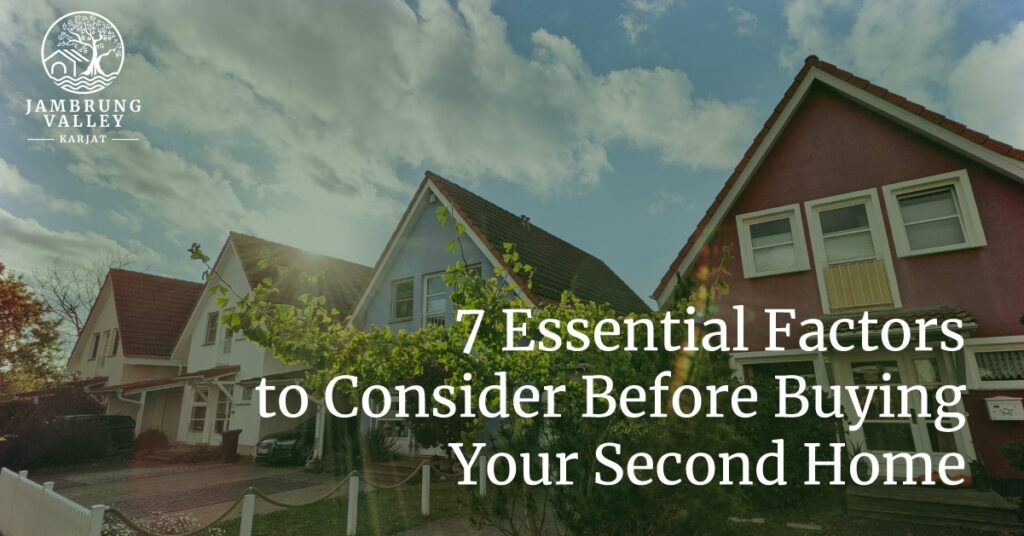
Investing in a second home can be an exciting and rewarding experience, but it’s crucial to make informed decisions to ensure your investment pays off. Whether you’re buying a second home for vacations, rental income, or as a future retirement spot, there are several important factors you need to consider. Below, we outline the seven essential things you must find out before making this significant purchase.
1) Assess Your Financial Readiness
Before diving into the second home market, take a close look at your financial situation. Make sure you have a clear understanding of your income, savings, and ongoing expenses. Assess whether you can afford the additional financial responsibilities of owning a second property. Factor in all potential costs such as mortgage payments, property taxes, insurance, and maintenance. A solid financial foundation is essential for a stress-free purchase.
2) Research the Real Estate Market
Understanding the local real estate market is key to making a wise investment. Investigate property values, market trends, and the overall economic health of the area. Determine whether property values are appreciating or declining. Research the demand for rental properties if you plan to rent out your second home. Knowing the market will help you decide if this is the right time and place to buy.
3) Clarify the Purpose of the Purchase
Determine why you want to buy a second home. Is it primarily for personal use, rental income, or future resale? Your answer will guide your decisions regarding location, property type, and budget. If it’s for personal use, choose a location that suits your lifestyle. For rental income, focus on areas with high demand and good rental yields. Clarifying your purpose will streamline your property search.
4) Explore Financing Options
Financing a second home is different from financing your primary residence. Lenders often have stricter requirements, such as larger down payments and higher interest rates. Explore all available financing options, including traditional mortgages, home equity loans, and alternative financing methods. Compare interest rates, loan terms, and repayment options to find the most suitable financing plan for your situation.
5) Understand the Costs of Ownership
Owning a second home comes with various ongoing costs that go beyond the initial purchase price. You’ll need to budget for property taxes, homeowners’ insurance, utilities, and regular maintenance. Additionally, if your second home is in a different state or country, consider the cost of managing the property remotely, which may require hiring a property management company. Being prepared for these costs will help you avoid financial surprises down the road.
6) Learn About Tax Implications
Owning a second home can have significant tax implications. You may be liable for additional property taxes, and if you plan to rent out the property, rental income may be subject to income tax. However, you may also qualify for certain tax deductions related to the property’s expenses. Consult with a tax professional to understand your tax obligations and explore potential tax benefits associated with your second home.
7) Plan for the Long Term
Consider the long-term implications of owning a second home. Will this property serve your needs as you age? Do you have an exit strategy if your circumstances change? Think about how the property fits into your long-term financial and personal goals. Whether you plan to keep the home for the long haul, pass it on to your family, or eventually sell it, having a long-term plan is crucial for making the right investment decision.
If you’re looking for a serene and picturesque location for your second home, consider Jambrung Valley in Karjat. This hidden gem offers breathtaking natural beauty, a peaceful environment, and potential for appreciation, making it an excellent choice for those seeking a tranquil retreat or a promising investment opportunity.



